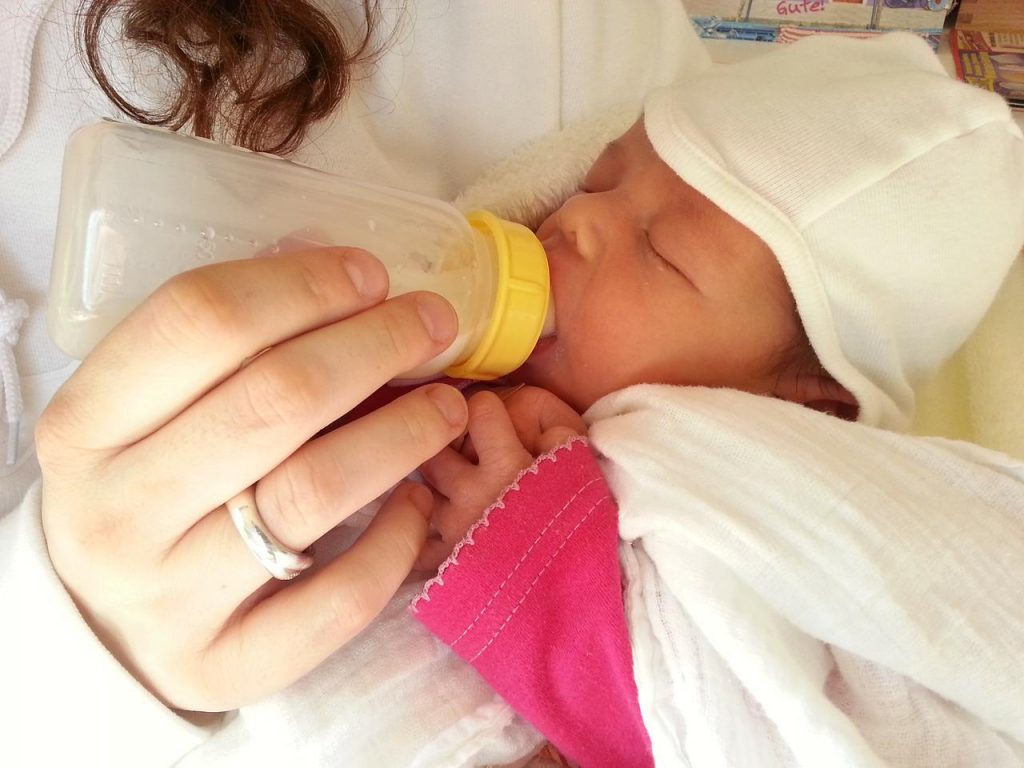Why You Shouldn’t Make Homemade Baby Formula
With severe baby formula shortages plaguing the nation, some parents are trying to make their own. Here's why that's not a good idea.
This article is more than 2 years old

The nationwide baby formula shortage is getting a lot worse and worried parents are panicking, Vox reports. With store shelves almost bare, some desperate parents are turning to the internet for homemade alternatives to get their baby’s source of nutrients. But these do-it-yourself versions come with serious health risks. And pediatricians, medical professionals, and health officials are warning people who are currently affected by the shortage of the very serious dangers.
Worried about the health impacts of some faux baby formula ideas posted online, pediatricians like Doctor Tanya Altmann and former Chair of the American Academy of Pediatrics Committee on Nutrition and Doctor Steven Abrams say there are ways to get through the shortage. However, it’s important to work with a professional to address your baby’s particular needs. The pair also gave Eyewitness News answers to some pressing questions about what’s safe and what’s not.
The most common question from parents right now is, “Can I make baby formula at home?” And the answer is a very simple No. “There is a lot of discussion about making your own formula at home and things of that sort, and I really want to discourage that as much as possible,” Abrams told the publication. Formulas are complex, and researchers have spent years developing the right combination of ingredients to give infants the nutrients they need. The formula needs to be dense with protein, fat, vitamins, and minerals.
These items can’t be sourced at the grocery store. Additionally, the balance needs to be precise for babies’ health and development. “You can see how it would be really hard to duplicate in your own kitchen,” Abrams said. Homemade baby formulas can also result in infants not getting the right nutrition or having the ratio of their electrolytes disrupted, which can be very dangerous. There have also been cases of bacterial contamination, which can make babies very sick.
For parents wanting to know if they can stretch out their baby formula supply, the answer is also No. As your supply dwindles, adding in any other food sources or diluting the mixture with more water is tempting. But pediatricians say it’s not a good idea. While parents can start introducing their babies to solids at four to six months, these foods are not a nutritional substitute for formula at that age. “Even when you start solids, infant formula is still the major source of nutrition for your baby,” Altmann told Eyewitness News.
Fortunately, there are a few safer alternatives to homemade baby formula. Ordering international formulas online is one of them, but parents still need to be vigilant. There are some high-quality products manufactured in Europe and Australia. However, it’s important to make sure you are ordering from reputable retailers. Abrams recommended buying from trusted pharmacies and checking how the formula’s nutrition compares to FDA-approved formula.

But the best and safest option for parents is to switch baby formula brands. Altmann recommends, in cases where it’s possible, to be as flexible as possible and make formula switches. While it might take babies a few days to get used to a different brand, in most cases switching is fine. However, if your child has an allergy or sensitivity and has had previous reactions to different formulas, consult your pediatrician before switching. This is because not all formulas are the same in terms of ingredient ratios.




